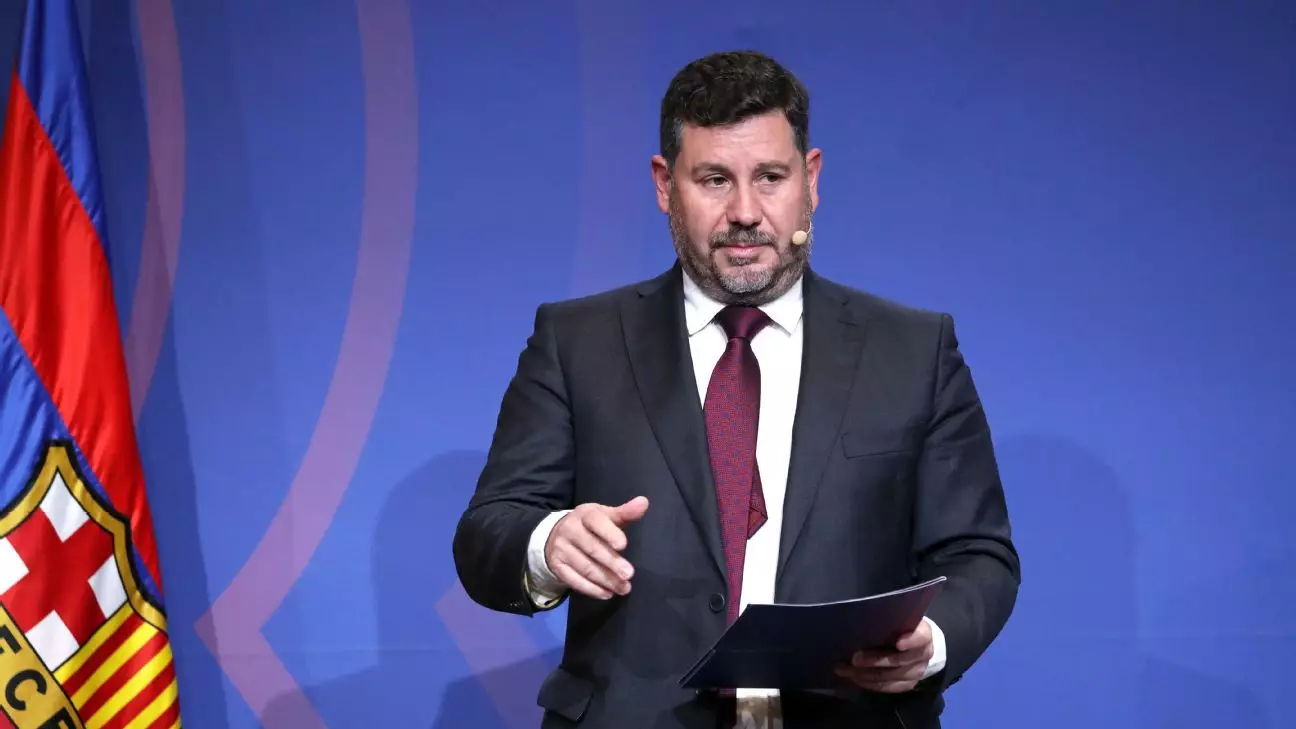The resignation of Barcelona’s vice president of finance, Eduard Romeu, has sent shockwaves through the Catalan club. Romeu cited professional reasons for his decision to step down mid-season, becoming the latest in a series of resignations from directors and executives since president Joan Laporta was elected three years ago.
Romeu’s departure comes at a critical time for Barcelona, as the club continues to grapple with economic problems. Despite his efforts to improve Barça’s financial situation, the club remains around €200 million ($218.8m) in excess of their LaLiga-imposed annual spending limit of €204m. With just three months left until the closing of the financial year, Barcelona is facing the challenge of meeting their budgeted income for the 2023-24 campaign, which was set at €859 million and must be achieved by June 30.
The looming financial constraints at Barcelona could force the club to consider offers for key players this summer. Recent reports have indicated that defender Ronald Araújo is attracting interest from other clubs, raising the possibility of his departure. Romeu’s resignation adds to the uncertainty surrounding the club’s future transfer strategies and financial stability.
Barcelona’s Financial Recovery
Despite facing financial challenges, Barcelona has made progress in improving their economic standing under Romeu’s tenure. He played a crucial role in securing guarantors for Laporta’s presidency and overseeing the sale of club assets in 2022 to fund important signings. Laporta praised Romeu for his contributions to the club’s financial recovery, but acknowledged that there is still work to be done to ensure long-term stability.
Romeu’s resignation is not an isolated event in Barcelona’s recent history. Since Laporta’s election in 2021, the club has experienced a revolving door of directors and executives stepping down from their positions. Romeu’s predecessor, Jaume Giró, resigned shortly after Laporta’s election, signaling the beginning of a period of instability behind the scenes. Laporta has indicated that Romeu’s responsibilities will be temporarily taken on by existing members of the economic department, highlighting the ongoing uncertainty within the club.
Eduard Romeu’s resignation has created a significant void in Barcelona’s financial management structure. His departure raises questions about the club’s ability to navigate their current economic challenges and make critical decisions regarding player sales and financial planning. As Barcelona moves forward, it remains to be seen how they will address these issues and whether they can maintain financial stability in the long run.

Leave a Reply